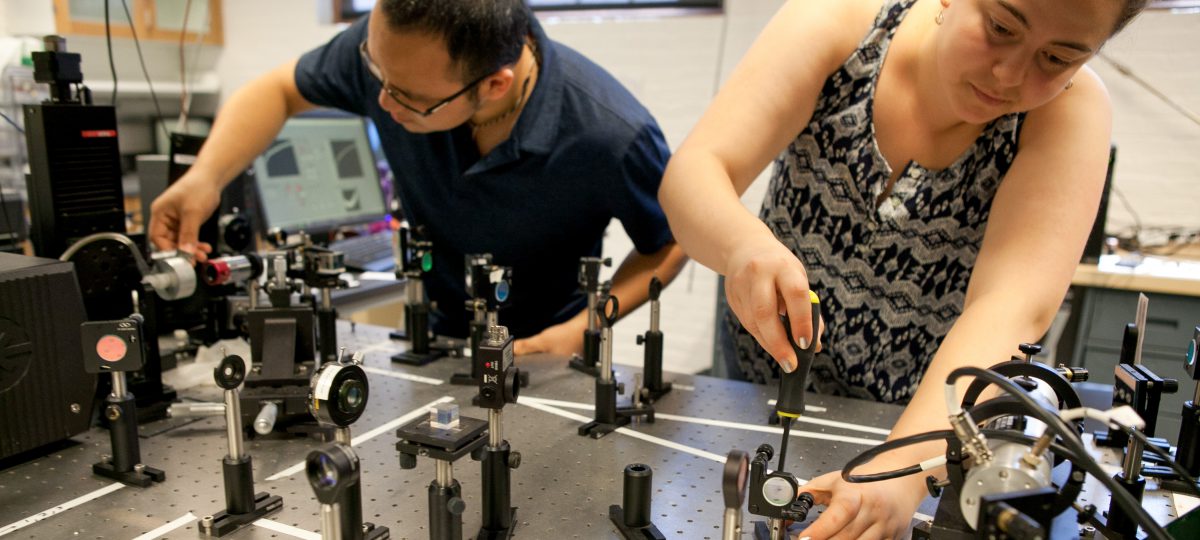Astronomy Majors
Thinking about an astronomy major or correlate at Vassar?
If so, we urge you to talk with he Vassar Astronomers Edward Buie (Sanders Physics 204, ebui@vassar.edu) and Colette Salyk (Sanders Physics 101.1, cosalyk@vassar.edu) There are lots of options for course study and independent research including summer research through URSI and Keck.
Why be an astronomy major?
It’s fun and useful. About half of our majors go onto graduate school in astronomy and several are now professors. Others pursue careers in teaching, medicine, law, business, computer science, or engineering. Some of our graduates are at the Space Telescope Science Institute, Harvard-Smithsonian Center for Astrophysics, Goddard Space Flight Center, Dartmouth Engineering, Columbia, U. Wyoming, U. Alabama, U. Colorado,Boston U., Indiana U., RIT, UCLA, Caltech, U. Maryland, U. Florida, -even Capitol Hill.
What course is right for you as a First year?
ASTR 101(solar system astronomy, a fall semester course) and ASTR 105 (stars, galaxies, and cosmology, a spring semester course) are good introductory courses for anyone, with or without strong math/science backgrounds (they’re useful for future majors too).
Observational Astronomy (ASTR 240, a spring course) is open to first years with strong physics and math backgrounds: permission required
We also have upper-level classes in Stellar Astrophysics (ASTR 220), Galaxies and Galactic Structure (ASTR 322) Astrophysics of the INterstellar Medium (ASTR 320), Planets (ASTR 230), and Exoplanets and Planet Formation (ASTR 330)
We strongly recommend that potential astronomy majors who plan to pursue astronomy as a career take physics and math in their freshman year: please come to us for advice!
We have a state-of-the-art Class of ’51 Observatory on campus that houses a 32″ telescope, the largest in the state and among our peer institutions. It also includes a 20″ reflecting telescope and an 8″ refractor, plus CCD cameras and spectrographs. If you are interested in being involved at the Bservator, contact Professor Salyk.
We are active members of the KEck Northeast Astronomy Consortium, which exchanges summer students for research at member institutions(Wellesley, Williams, Wesleyan, Haverford, Swarthmore, Colgate, and Middlebury) and holds student meetings in the fall. Ask us for more details!
We employ majors and prospective majors in our department through Vassar’s intern and assistantship program (URSI during the summer, also during the academic year) and offer research experience at all levels to interest hard workers- just let us know who you are! WE are pursuing research on galaxy evolution, exoplanets, and planet formation, using Vassar telescopes, the Hubble Space Telescope, JWST, and the Atacama Large Millimeter Array, as well as by creating our own computer simulations.
